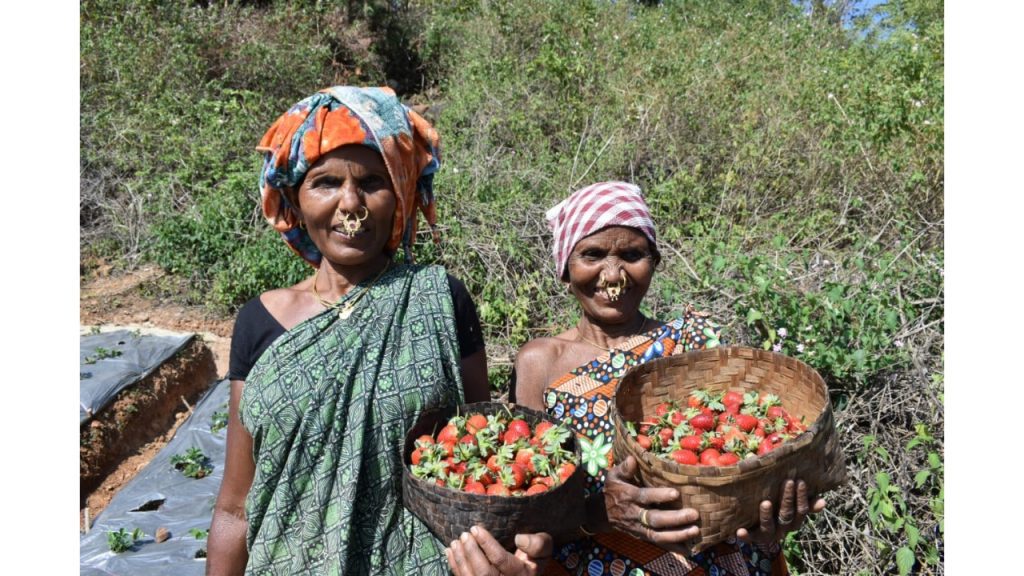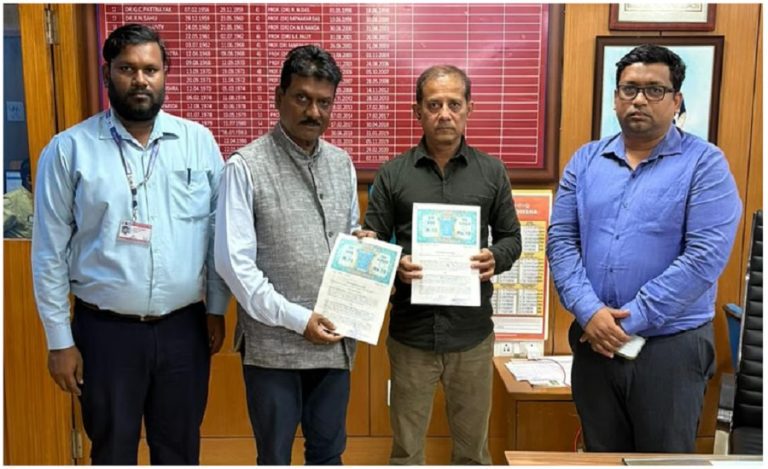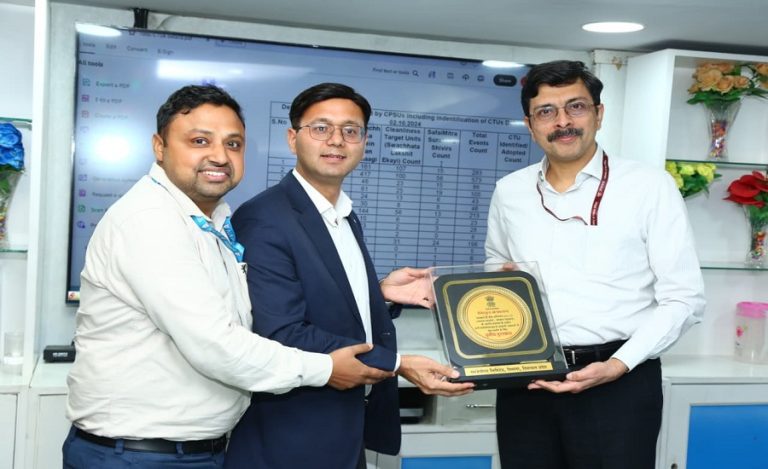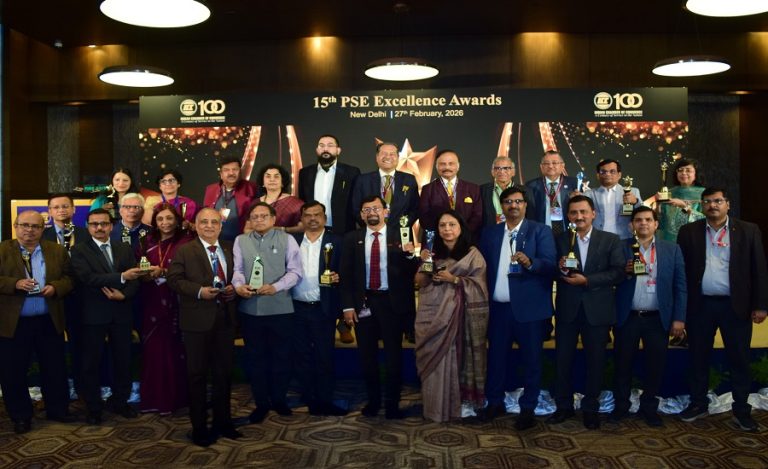A remote area in Odisha’s Koraput district is now set to become the hub of strawberry cultivation in the state. How this came about is an inspiring story of foresightedness and good administration. It all started at Doliamba village in the Kotia region of Patangi block in Koraput district. This place was once one of the remotest areas of the state, located along the Odisha-Andhra Pradesh border. But now, thanks to the district administration’s intervention, it is on its way to becoming the strawberry hub of the state. Indian Masterminds presents this inspiring success story with a difference.
RESEARCH AND TRAINING
Strawberry cultivation in this region was not an easy task. After a lot of research, the Integrated Tribal Development Agency (ITDA) officials found that Kotia soil is suitable for strawberry cultivation. Thereafter, the officials encouraged the local villagers and helped them in cultivation strawberries.
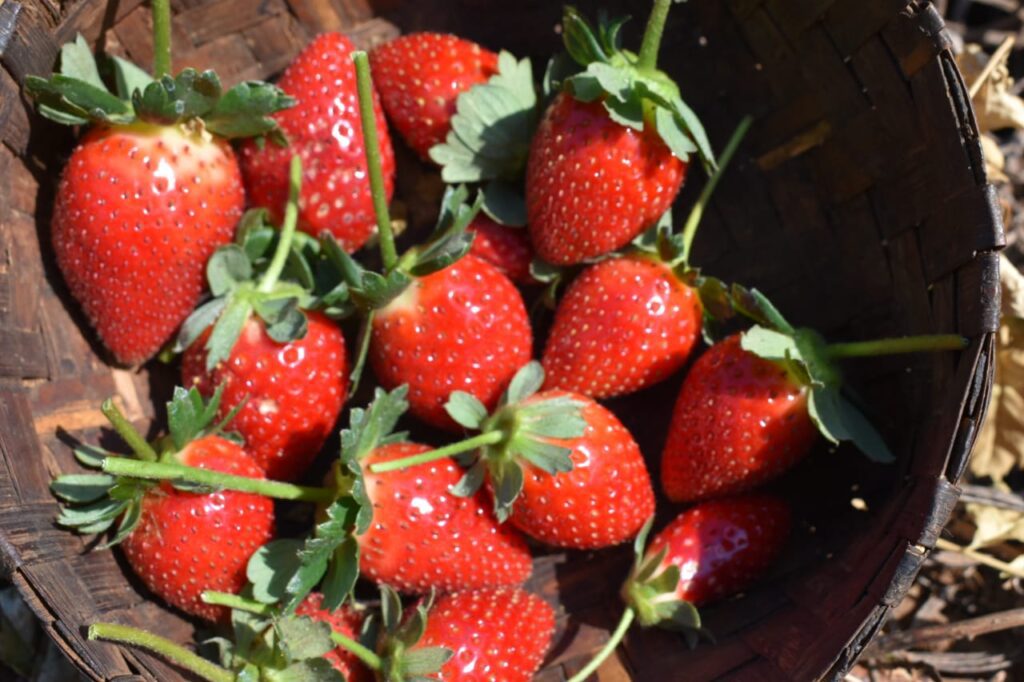
“Strawberries have a huge demand in the national and international markets and the cultivation will help the villagers become self-reliant,” said an ITDA official.
The officials had to convince about 50 families in the Doliamba village to take up the strawberry farming for higher returns. The ITDA officials held the first meeting with villagers on October 29 last year. When the villagers agreed, they purchased about 55,000 strawberry plants for Rs 30 each from a registered firm in Pune.
“Koraput district has the ideal climate for strawberry cultivation as it requires temperature between 15 degree and 25 degree, adequate sunlight and availability of water. In a bid to provide sustainable livelihood to Doliamba villagers, the plantation drive was started in January this year. So far, we have got 15 kg to 17 kg strawberries,” said Koraput ITDA’s Project Coordinator Kasi Prasad Nayak.
Villagers cultivating strawberries say that they have become acquainted with the process and will continue with it in the coming years.
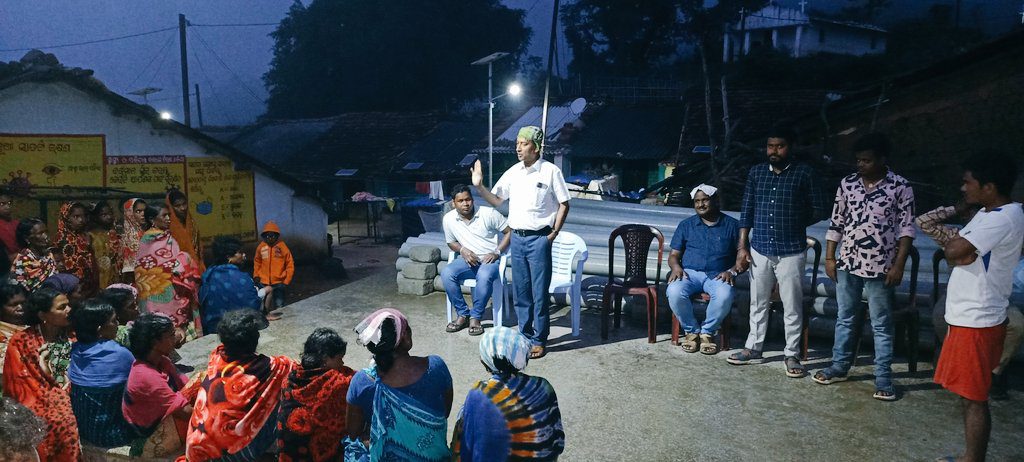
Koraput Collector, IAS officer M. Abdaal Akhtar, said in an interaction with media: “The strawberry plantation is aimed at improving the livelihood of people in Doliamba village. Funds for the purpose have been arranged from ITDA, DMF and CSR wings of different companies.”
EMPOWERING TRIBAL WOMEN
Kotia region is not only becoming a strawberry hub, but it is also providing empowerment to the women of the villages. The officials have undertaken the farming by involving three women self-help groups for sustainable livelihood. This new concept has provided the local tribal women a new hope for their livelihood avenues. Koraput administration has given them technical support and assured them about marketing of their strawberries.
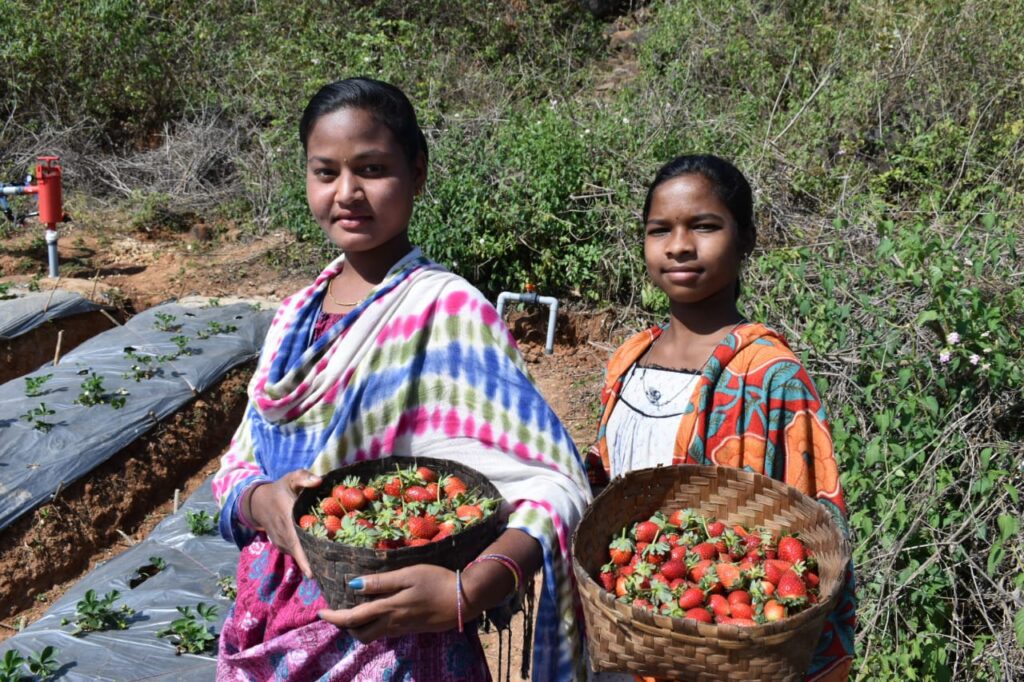
CULTIVATION ON 5 ACRES LAND
The entire mission of strawberry cultivation was started to help and boost the locals financially and to make them self-reliant. The Koraput district administration has provided five acres of land to the farmers in Doliamba to cultivate strawberries.
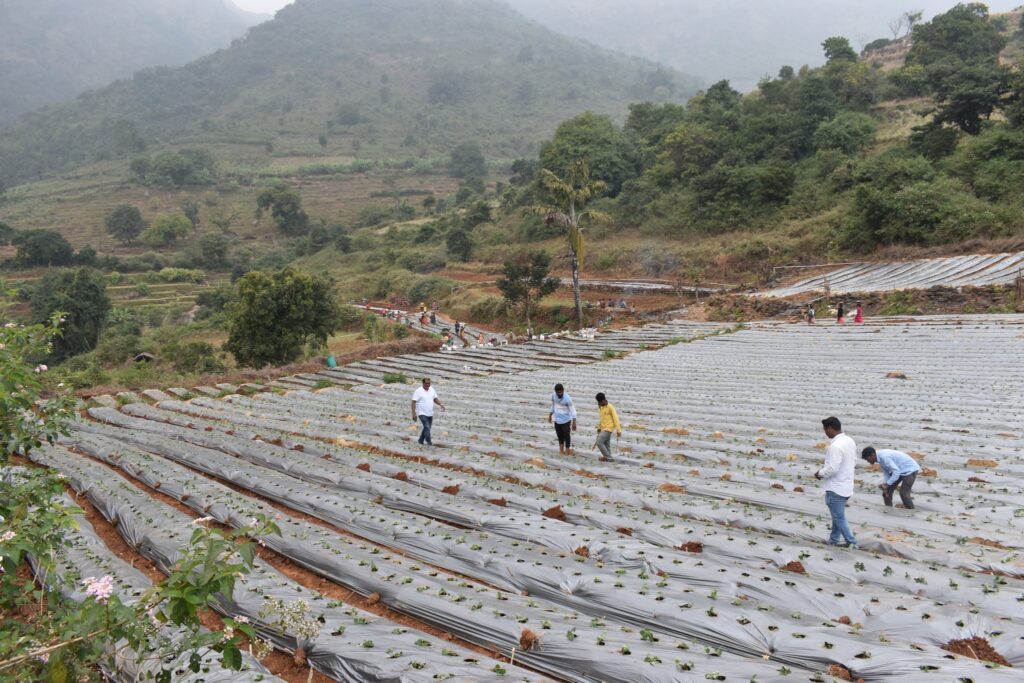
This year, the villagers have harvested 15-16 kgs of the fruit which they are selling at the cost of Rs 400 per kg.
Collector Koraput said, “Fruit cultivation will make the villagers financially independent and help them earn a living to meet the expenses of their families.”
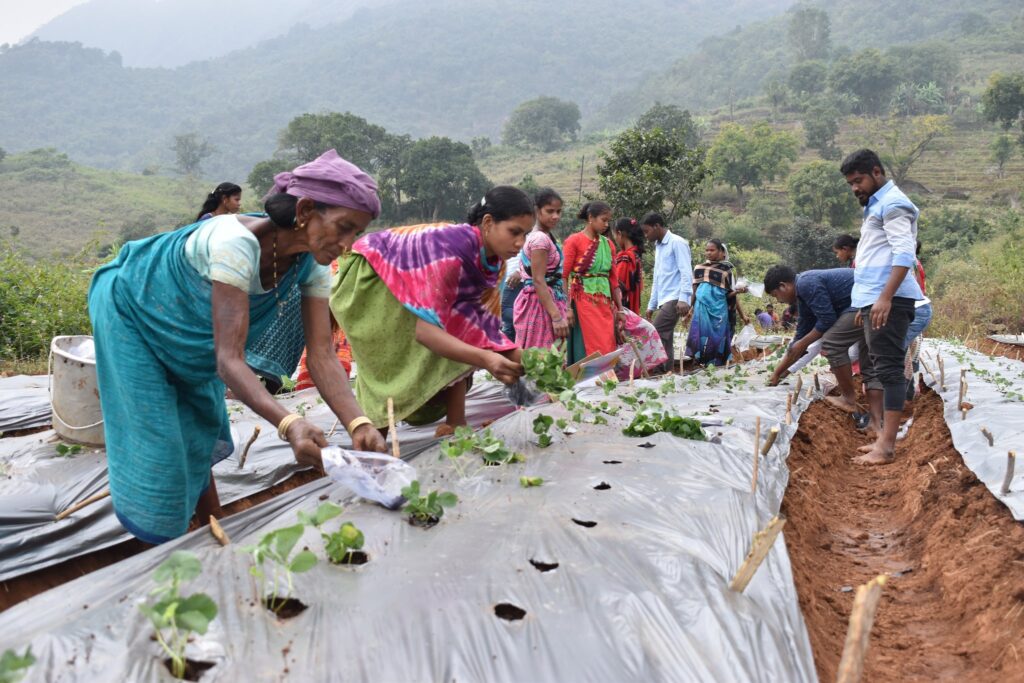
According to reports, these strawberries are 100 per cent organic as bio-fertilizers are being used to grow them. The strawberry saplings are planted at a distance of 1.5 feet. Each plant can give at least half a kg fruits and the administration is hoping for a yield of over 10 tonne by April or May.
FINDING MARKETS
District Administration of Koraput is putting in all the efforts to help the farmers and locals to sell the fresh strawberries in and outside the state of Odisha. They are training the farmers on how to keep the strawberries free for a long time.
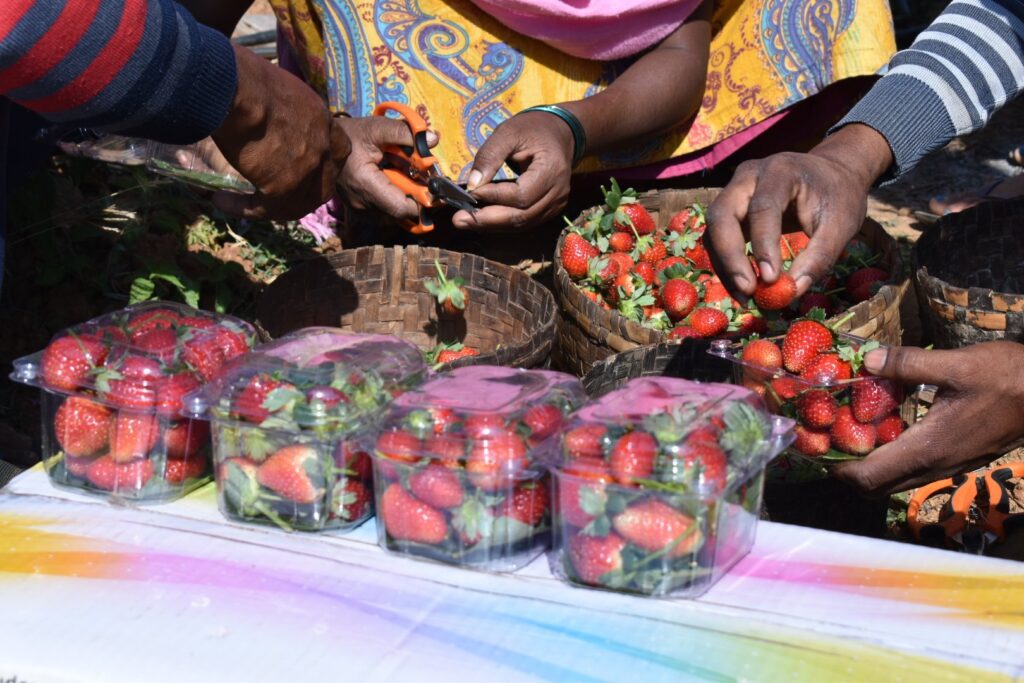
Apart from this, special packaging materials are being provided to the farmers to safely transport the produce. The produce will be sold in Jeypore and Koraput besides retail outlets in cities like Visakhapatnam, Raipur and Bhubaneswar.
“Strawberry cultivation has been undertaken as part of the livelihood intensive action plan in the bordering villages. We are hopeful of its success,” said Collector Akhtar.

